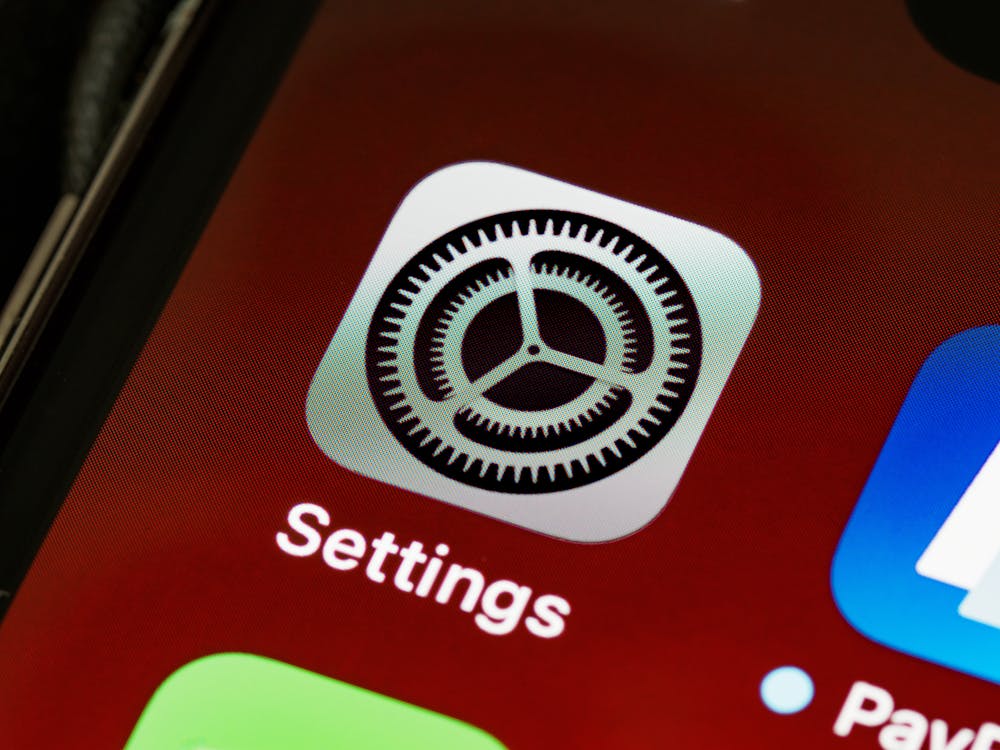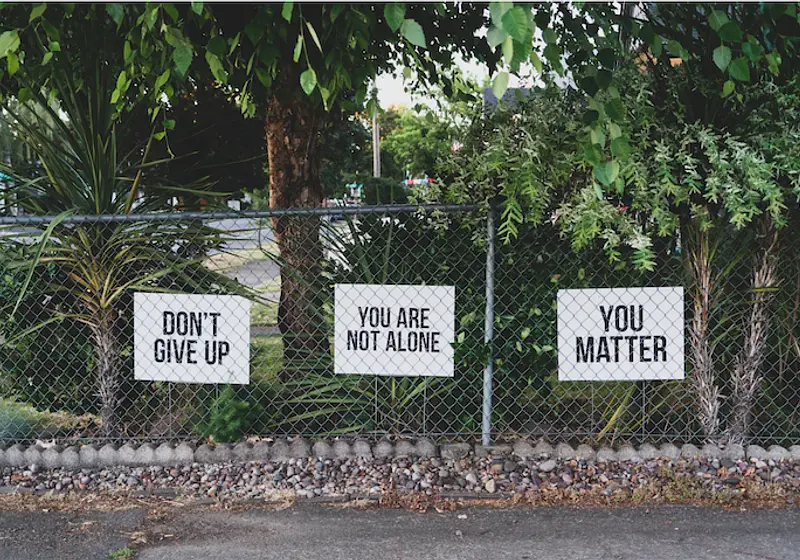Every day, horrible things happen in the world. There's no avoiding it, no matter how much you may want to. It's normal to feel distressed and overwhelmed at the thought of everything going on, but going down a rabbit hole of anxiety isn't going to help anyone.
In times like these, it's important to set some guardrails for yourself so you can protect your health and catch yourself before things go too far. Here are some tips to do so!
Let us slide into your dms 🥰
Get notified of top trending articles like this one every week! (we won't spam you)Turn off Notifications
Have you ever picked up your phone, intending to check your texts or take a photo, but ended up seeing a link to a news article? These depressing articles can catch you off guard, especially if you're having a good time. Seeing news about awful things can take a toll on your mental health, and it may make you feel like you don't deserve to be happy. This can be avoided simply by turning off your news notifications.
I'm not saying ignorance is bliss, especially when it comes to current events. Turning off notifications is most certainly not the same thing as refusing to read those articles. It's incredibly important to be aware of what's going on, but you need to do that when you're prepared to spend a lot of time on it. Don't let yourself drown in headlines.

Take the Quiz: Discover Your Ideal Stress-Relieving Hobby
Everyone deals with stress differently, and finding the right hobby can help you relax and unwind. Take this quiz to find out which stress-relievin...
Take Walks
Taking a walk on any occasion is one of the best ways to clear your mind and get in a good headspace. As found by the National Library of Medicine, 98% of 952 studies concluded that individuals' mental health improved when interacting with nature and being outside. Take advantage of our planet and let it help you, both mentally and physically. Taking a walk can ground you and give you time to think, all while letting you focus on the smaller details of nature that you might miss on a regular day.

Image Credit: Lucas Agustín from Pexels
Give Yourself Screen Time
You've likely experienced what it's like to spiral online, clicking on link after link, unable to pull away. This phenomenon is known as "doomscrolling." When you doomscroll through the news, it can be much more harmful than scrolling through Instagram. Somewhere along this rabbit hole, you'll realize that this is real life, which can take a toll on your mental health. You don't want to become entangled in a web of distressing news—things you can't control—but breaking away can feel almost impossible.

Image Credit: Brett Jordan from Pexels
Rather than telling yourself you're capable of breaking away, just set some restrictions for your future self. Before you begin spiraling, set a timer on your phone and promise yourself you'll stop at the end of it. Or, if you're like me and don't think you'll listen to the timer, take advantage of the screen time settings on your phone and set one. When that hourglass pops up, you'll thank yourself.
Talk to Someone Else
Our world is a complicated place, and learning the truth about it can lead to complicated emotions. There's no reason why you should keep those thoughts to yourself. Granted, not every situation is appropriate for political discussions, but talking to someone in a private setting can help your mental health. This can be a parent, an older sibling, or another adult you trust.
Having these conversations can be difficult and even awkward at times. However, even if you don't think your reactions to the news are justified or you think you're overreacting, keep in mind that the people who care about you want you to be happy. All you have to do is tell them what you learned and what you think about it, and that can lead to a conversation that makes everything clearer for you.
Asking questions, as well, can cause a deeper understanding of the topics you're discussing as well. These conversations can be either emotional or educational—whatever you need.
Draw or Color
When was the last time you picked up a crayon? As we grow up, the first things to go are the things that used to bring us fun and entertainment. When life around you becomes darker, go back to those things that comfort you.
A great example of this is drawing or coloring. Not only does it bring back memories, but it's also been proven to be great for your mental health.

Image Credit: Anna Shvets from Pexels
Get Involved in Your Community
Believe it or not, the best way to help yourself is to help others. As The Clay Center for Young Healthy Minds puts it, "Our brains are wired for giving. The chemicals released by the brain during the process of giving are far more rewarding than when we receive gifts." Even researchers from Harvard Business School and the University of British Columbia found that when people gave and received money, those who gave had a greater amount of happiness.
All this goes to say that when you're feeling upset and helpless, volunteering and making an impact in your community can give you a sense of power over your life. It'll enable you to feel responsible for good things that happen, all while creating a more pleasant environment for everyone.

Image Credit: cottonbro studio from Pexels
One of the most important things you can do in this world to help yourself and those around you is to know what's going on, both locally and on a broader scale. This article isn't meant to prevent you from pursuing that information—in fact, I'm encouraging you to do so. However, it's important to not get wrapped up and obsessed with what you read and watch.
Make sure to spend time in your small world as well. And, above all, use the tools you have to build a safety net for yourself so the information you learn is your advantage, not your obstacle.














